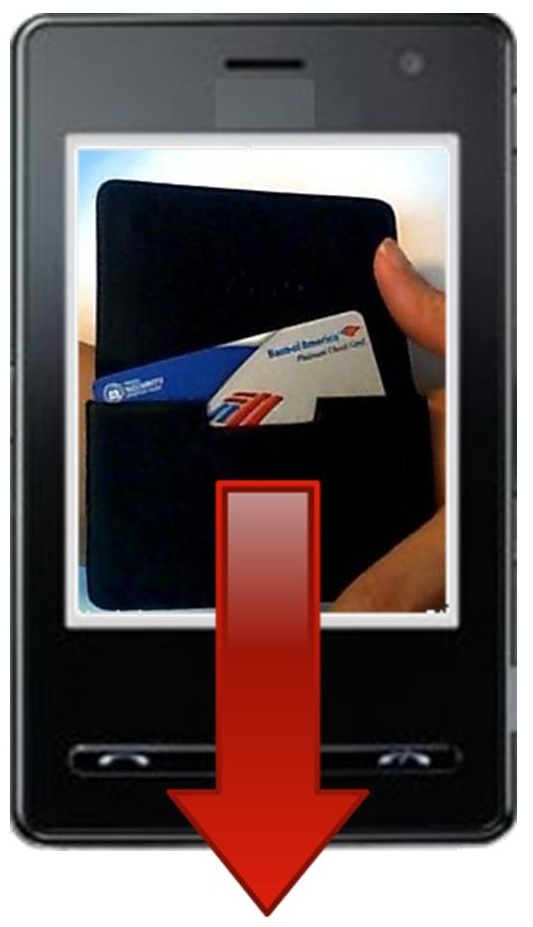 Mobile payments sector seeing a decline in wallet applications
Mobile payments sector seeing a decline in wallet applications
Mobile commerce is quickly becoming a major trend among consumers around the world. Many people consider mobile payments to be a simpler, more convenient way to pay for goods and services, partly due to the fact that mobile technology is so prolific. Much of mobile commerce has been powered through the use of mobile wallets, lightweight mobile applications meant to store and use financial information. While mobile commerce has been seeing strong growth over the past two years, these mobile wallets have not been growing more popular among consumers.
Wallets had been popular, but focus on NFC drives consumers away
In the advent of mobile payments, mobile wallets had been considered a necessary platform for mobile commerce as they provided much of the needed infrastructure for this form of commerce to work. Many of these applications are based on NFC technology, which allows for digital information to be transmitted over short distances. The problem, however, is that NFC technology is not universally supported throughout the mobile space. Indeed, the technology has been losing support from many of the companies and organizations that have emerged as strong players in the field of mobile payments, such as PayPal.
Consumers, as well as device makers, are favoring options free from NFC
Mobile wallets are beginning to give way to other applications that take a more accommodating approach to mobile payments. These applications seek to enable a wider range of consumers to participate in mobile commerce, which had, in the past, been largely restricted to those with NFC-enabled devices. These devices are still rare despite the efforts of companies invested in mobile commerce to see their expansion. A growing number of device manufacturers are beginning to abandon NFC technology, favoring mobile commerce platforms that offer some alternative.
Wallets may still be valid in mobile payments if an alternative to NFC is found
As device makers, like Apple, begin to move away from NFC technology, mobile wallets may be due for some change. These applications still receive significant support from Google and Isis, but the NFC-capabilities of these platforms make them unaccommodating to the growing interests of consumers. If organizations focused on mobile commerce want to retain the foothold they have established in this still emerging sector, they may soon have to consider finding an alternative to NFC technology.
 Mobile commerce becoming influence by social networking
Mobile commerce becoming influence by social networking
Mobile commerce is growing more prolific around the world. It is becoming increasingly important for retailers and large brands to begin accommodating the needs of a growing consumer base that is tethered to mobile technology. As businesses begin to focus more on mobile commerce, consumers are also becoming increasingly reliant on the information they can find online, bringing more attention to the concept of social commerce. Social networks and other forms of online engagement are aiding in the continued evolution of mobile commerce by introducing more dynamic aspects to this still emerging sector.
Social commerce begins emerging among consumers
The concept behind social commerce is relatively simple: Consumers are able to find reviews for products on social networks and use this information to make informed purchase decisions. Peer reviews of products and services have long been valuable to consumers. These reviews often determine whether or not a consumer will purchase a particular product or support a particular brand. Bad reviews have, in the past, meant significant loss for a wide range of brands. As these reviews become increasingly mobile-centric, they are beginning to affect the purchasing habits of consumers.
Social media provides new platform for peer reviews
The average consumer relies heavily on social media to stay connected to friends and family as well as attain information of subjects they may be interested in. Consumers tend to share a great deal of information through social networking sites like Facebook and Twitter, and this sharing often includes information concerning the products they purchase. A recent study from Reevoo, a market research firm, shows that a growing number of consumers are accessing product reviews from their mobile devices. The report also shows a major spike in the reviews that consumers are posting from mobile devices. According to the report, reviews from mobile devices have grown by 212% since September 2011.
Social media may become intertwined with mobile commerce
Mobile commerce is becoming a more prominent part of the lives of consumers, which in turn is leading mobile commerce to become a more prominent part of social networking. Mobile commerce itself refers to much more than payments being made from a smartphone or tablet, it also encompasses mobile shopping and banking. Because of the always-connected, always-online nature of mobile commerce, social networking may soon become a major part of the way people use their mobile devices to purchase, review, and search for the products they may be interested in.
 Mobile payments sector seeing a decline in wallet applications
Mobile payments sector seeing a decline in wallet applications
 Mobile commerce becoming influence by social networking
Mobile commerce becoming influence by social networking